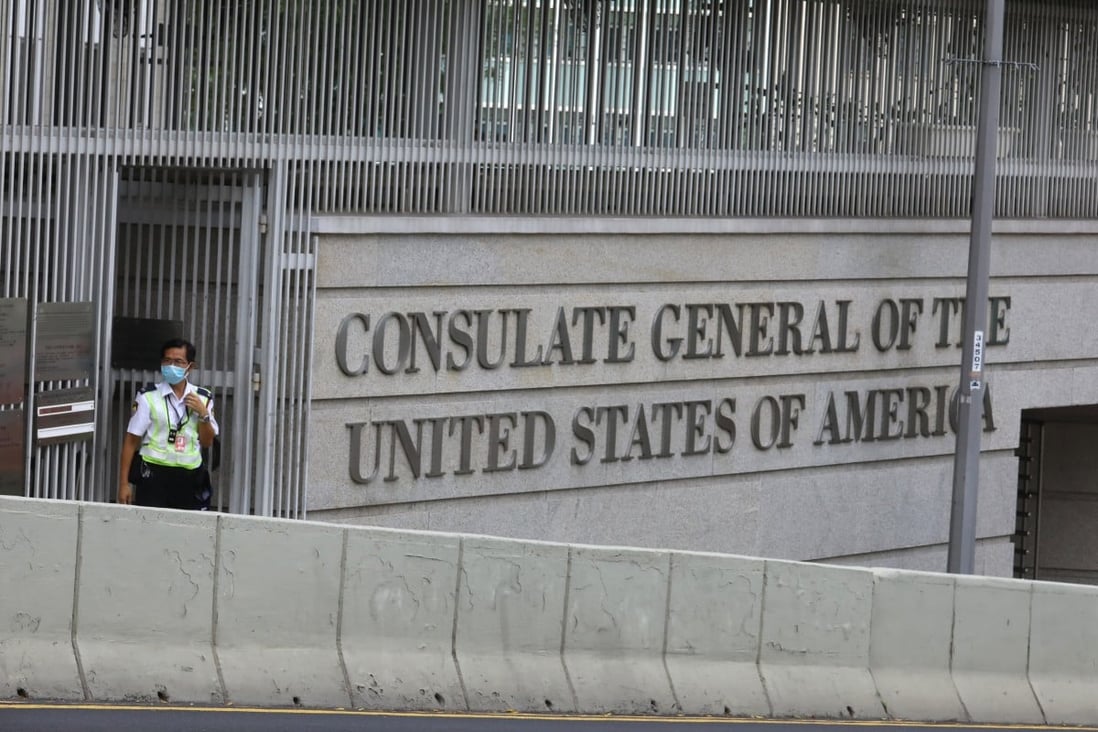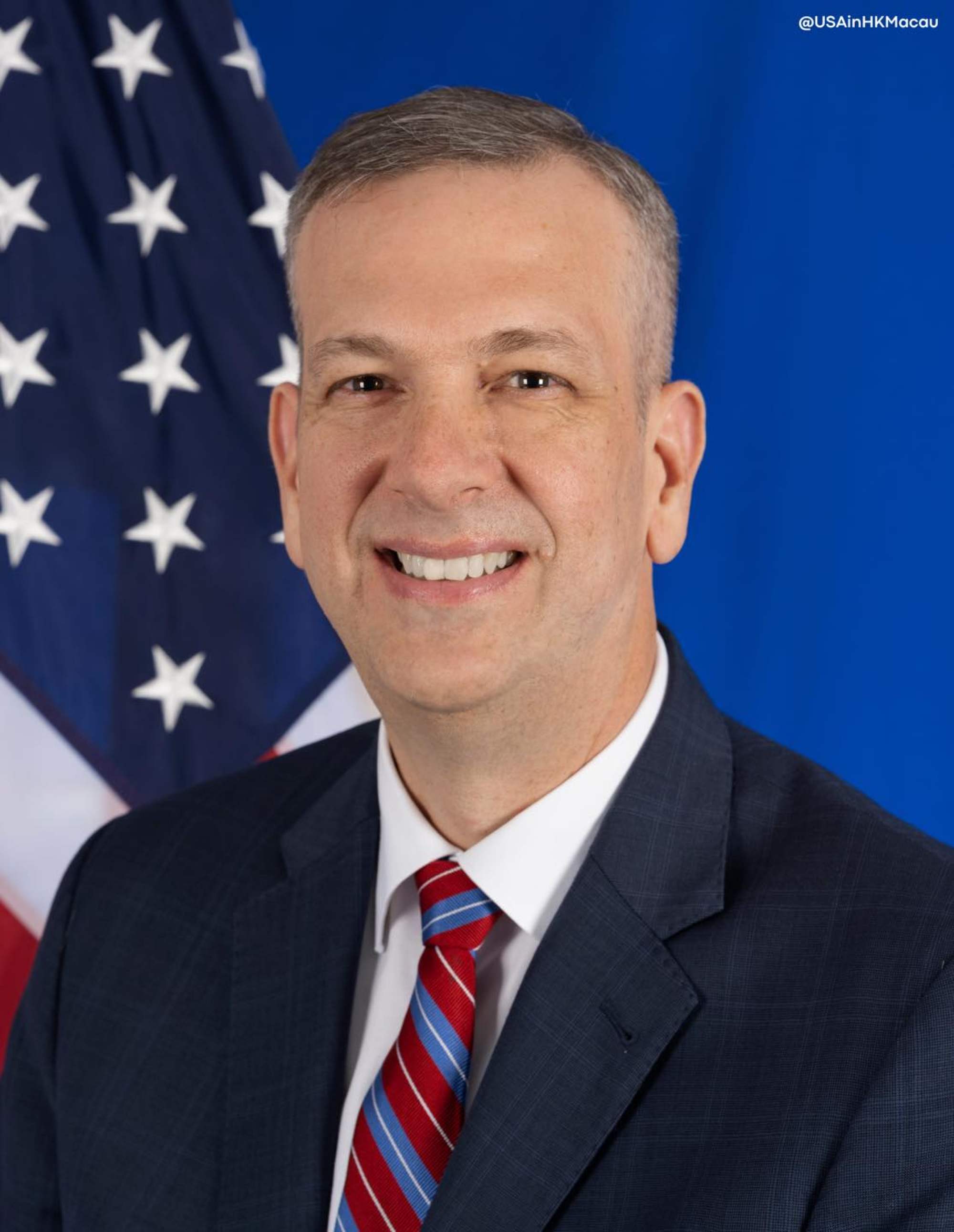Lilian Cheng

Beijing’s foreign affairs representative in Hong Kong has drawn three red lines for the United States’ local top diplomat that included a warning not to endanger national security, prompting the consulate to issue a defiant statement saying it would continue to express its concerns over the “erosion” of the city’s high degree of autonomy.
The Ministry of Foreign Affairs Office in Hong Kong on Thursday said Commissioner Liu Guangyuan met US Consul General Gregory May to “lodge solemn representations and express strong disapproval” over his mission’s “inappropriate words and deeds” that interfered in local affairs.
The private meeting took place early this week, according to a diplomatic source.
“Liu urged the [consul general] to abide by diplomatic ethics and not to go further down the wrong path,” a ministry office spokesman said. “[He] also drew three red lines for US consul general and US consulate general in Hong Kong, which is not to endanger China’s national security, not to engage in political infiltration in Hong Kong and not to slander or damage Hong Kong’s development prospect.”
In response, a US consulate spokesman said: “While the United States consulate general does not generally comment on private diplomatic meetings, we do not hesitate to express publicly and privately the United States’ deep concern over the erosion of Hong Kong’s autonomy.”
Last week, two US lawmakers introduced a bill that would require the president to close all three of Hong Kong’s economic and trade offices in the country if the White House decided Beijing had undermined the financial hub’s high degree of autonomy.
The bill triggered a strong response from the Hong Kong government, which urged Washington to “stop maliciously interfering” in its affairs and vowed to continue liaising with partners in the US to enrich ties.
May, an experienced China hand, was announced as the new US consul general for Hong Kong and Macau last September. He succeeded Hanscom Smith, who arrived in the city at the height of the 2019 anti-government protests.

Gregory May, the US consul general in Hong Kong. Photo: US Consulate General Hong Kong and Macau
May has taken up the role as ties between Hong Kong and Washington have grown increasingly frayed following Beijing’s imposition of the national security law in 2020, which triggered American sanctions on top local and mainland Chinese officials.
Attending a seminar by Washington-based think tank the Centre for Strategic and International Studies virtually last month, May said Beijing’s recent interpretation of the national security law “could further undermine the independence of Hong Kong’s judiciary system”.
He also accused the Hong Kong government of curtailing press freedoms since the enactment of the national security law imposed in response to the 2019 anti-government protests.
Beijing was quick to condemn his remarks and accused him of “intentionally smearing the business environment of Hong Kong”, claiming his attempt to defame the city’s rule of law and freedom would “only unveil his perilous intention to trouble Hong Kong and suppress China”.
The country’s top legislative body in December ruled Hong Kong’s leader and the city’s Committee for Safeguarding National Security should decide whether overseas lawyers would be permitted to take part in sensitive cases.
Lau Siu-kai, a consultant for the semi-official Chinese Association of Hong Kong and Macau Studies think tank, said the meeting indicated Beijing was highly dissatisfied with the American diplomat.
“The local opposition was kicked out of the political landscape after the introduction of the national security law, but the foreign influence attempting to sabotage the city’s development might still be around ready to make trouble,” Lau said.
“The strong complaints during the meeting may show that Beijing has got hold of some sensitive information and wants to warn the US.”
Last November, Beijing lifted the requirement for the US consul general to obtain approval before meeting Hong Kong officials or representatives of public educational institutes and asked for five days’ notice instead.
The restrictions were imposed more than two years ago in a tit-for-tat move after Washington’s decision to limit the movement of Chinese envoys in the US.
Chief Executive John Lee Ka-chiu was among 11 Beijing and Hong Kong officials sanctioned by Washington in 2020 amid accusations they had set out to “undermine Hong Kong’s autonomy and restrict the freedom of expression or assembly of the citizens of Hong Kong” after the imposition of the national security law.
No comments:
Post a Comment